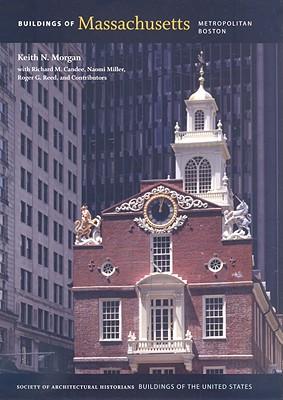This latest volume in the Society of Architectural Historians' Buildings of the United States series analyzes the architecture, landscape, and planning patterns of the capital of Massachusetts and forty surrounding cities and towns that fan out from Boston Harbor. The term "metropolitan" here emphasizes both the range of the project and the importance of this area in introducing regional planning to the United States. Extensively illustrated with photographs and maps, and supplemented with a glossary and bibliography, the book assesses built form from initial colonial settlement in the 1630s through twenty-first-century additions to the Boston area landscape. The authors selected both exemplary and representative buildings and sites for inclusion. Here are structures of international reputation and buildings that characterize the vernacular housing patterns of the region. Because of the exceptional importance of the Boston area to the history of landscape architecture and city planning, those issues have been addressed in both the narrative introduction and the 640 entries. In contrast to other existing architectural guides, which do not move beyond central Boston and Cambridge, The Buildings of Massachusetts: Metro Boston canvasses the twelve sections of central Boston, its eight annexed neighborhoods, five sections of Cambridge (the district's second largest municipality), and forty surrounding communities have been examined. This volume has been designed to complement a second guidebook in the Buildings of the United States series that will focus on the buildings of Massachusetts from Cape Cod to the Berkshires.

Buildings of Massachusetts: Metropolitan Boston
This latest volume in the Society of Architectural Historians' Buildings of the United States series analyzes the architecture, landscape, and planning patterns of the capital of Massachusetts and forty surrounding cities and towns that fan out from Boston Harbor. The term "metropolitan" here emphasizes both the range of the project and the importance of this area in introducing regional planning to the United States. Extensively illustrated with photographs and maps, and supplemented with a glossary and bibliography, the book assesses built form from initial colonial settlement in the 1630s through twenty-first-century additions to the Boston area landscape. The authors selected both exemplary and representative buildings and sites for inclusion. Here are structures of international reputation and buildings that characterize the vernacular housing patterns of the region. Because of the exceptional importance of the Boston area to the history of landscape architecture and city planning, those issues have been addressed in both the narrative introduction and the 640 entries. In contrast to other existing architectural guides, which do not move beyond central Boston and Cambridge, The Buildings of Massachusetts: Metro Boston canvasses the twelve sections of central Boston, its eight annexed neighborhoods, five sections of Cambridge (the district's second largest municipality), and forty surrounding communities have been examined. This volume has been designed to complement a second guidebook in the Buildings of the United States series that will focus on the buildings of Massachusetts from Cape Cod to the Berkshires.